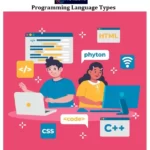
Introduction – C Programming Interview Questions
Welcome to our comprehensive guide to the top C programming interview questions in 2023. If you’re looking to ace your C programming interview and showcase your expertise, you’ve come to the right place. In this article, we’ll dive into a wide range of C programming topics and provide detailed answers to common interview questions. Whether you’re a fresh graduate or an experienced professional, this guide will equip you with the knowledge and confidence to excel in your C programming interview.
Top C Programming Interview Questions (2023)
1. What is C programming?
C programming is a high-level programming language that was developed by Dennis Ritchie in the early 1970s. It is widely used for system programming and also developing various applications. C programming offers a structured approach to software development and also provides low-level access to memory, making it efficient and versatile.
2. Why is C programming important?
C programming plays a crucial role in the software industry for several reasons:
a) Portability
C programs can be easily ported across different platforms, making them highly portable. This allows developers to write code that can run on various operating systems without significant modifications, saving time and also effort.
b) Efficiency
C programming allows for efficient memory management and direct access to hardware resources. This makes it suitable for developing applications that require high performance, such as operating systems, embedded systems, and game engines.
c) Legacy Code
Many existing software systems and libraries are written in C. Therefore, having a strong understanding of C programming enables developers to maintain and enhance legacy codebases, ensuring the longevity and stability of software systems.
3. Common C Programming Interview Questions
a) What are the differences between malloc() and calloc()?
Both malloc() and calloc() are memory allocation functions in C, but they differ in their behavior. The key differences are:
malloc()allocates a block of memory of the specified size but does not initialize the memory. The content of the allocated memory is indeterminate.calloc()also allocates a block of memory of the specified size but initializes the memory to zero. This ensures that all the bytes in the allocated memory are set to 0.
b) Explain the concept of pointers in C.
Pointers are variables that store memory addresses. They play a crucial role in C programming and allow for efficient memory manipulation and also data access. Here are some key points about pointers:
- Pointers are declared using the
*symbol. For example,int *ptr;declares a pointer to an integer. - Pointers can be assigned the address of a variable using the
&operator. For example,ptr = #assigns the address of thenumvariable to the pointerptr. - Pointers can be dereferenced using the
*operator. For example,*ptrgives the value stored at the memory address pointed to byptr.
c) What is the difference between strcpy() and strncpy()?
Both strcpy() and strncpy() are string manipulation functions in C, but they differ in how they handle null-terminated strings. The key differences are:
strcpy()copies the contents of the source string to the destination string until it encounters a null character ('\0'). It does not limit the number of characters copied and also may lead to buffer overflow if the destination string is not large enough to hold the entire source string.strncpy()also copies the contents of the source string to the destination string, but it allows you to specify the maximum number of characters to be copied. If the source string is shorter than the specified limit,strncpy()pads the remaining characters with null characters.
Conclusion
In this article, we have covered some of the top C programming interview questions in 2023. These questions provide a glimpse into the wide range of topics that may be discussed during a C programming interview. By understanding these concepts and practicing your answers, you’ll be well-prepared to showcase your C programming skills and also land your dream job.
Remember, mastering C programming is a continuous process, and staying updated with the latest industry trends and also practices is crucial for long-term success. Keep learning, practicing, and exploring new possibilities to further enhance your C programming expertise.
LIKE WHAT YOU’RE READING?
CHECK OUT SOME OF OUR OTHER GREAT CONTENT HERE
- DIFFERENT METHODS IN JAVA: A COMPREHENSIVE GUIDE
- MAJOR FEATURES OF JAVA PROGRAMMING LANGUAGE
- PYTHON LAMBDA FUNCTION: A COMPREHENSIVE GUIDE
- ARTIFICIAL INTELLIGENCE (AI) – A BEGINNER’S GUIDE
- HOW TO START A CAREER IN ARTIFICIAL INTELLIGENCE?
- WHAT IS MACHINE LEARNING?
- DATA SCIENCE – THE ULTIMATE GUIDE
- TOP 5 BEST SEO TOOLS(2022)
- TOOLS OF MACHINE LEARNING
- 7 MOST POPULAR TOOLS FOR DEEP LEARNING




1 Comment